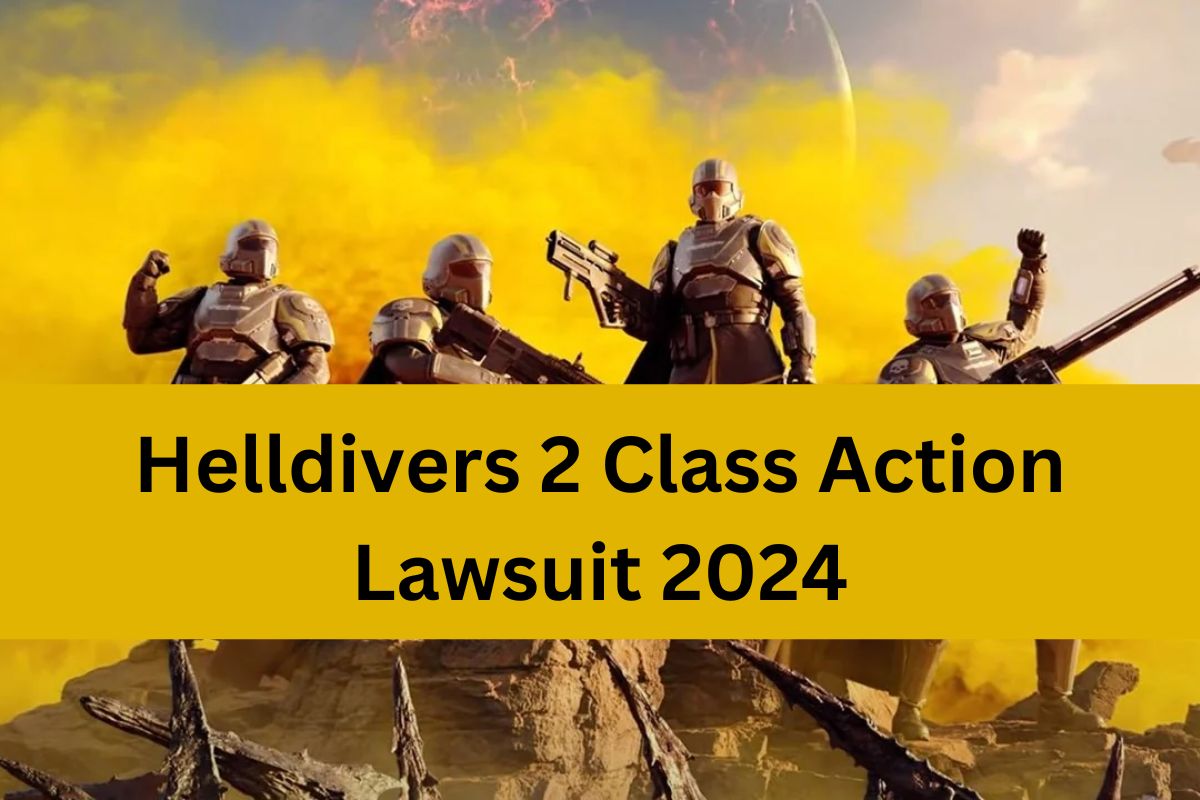Helldivers 2 Class Action Lawsuit 2024: The launch of Arrowhead Game Studios’ cooperative shooter, Helldivers 2, was a highly anticipated event in early 2023. However, enthusiasm waned significantly when players realized that a PlayStation Network (PSN) account was mandatory for saving progress, even for those who purchased the game on platforms like Steam for PC. This controversial requirement has ignited a firestorm of debate within the gaming community, raising a crucial question: Could this lead to a class action lawsuit against Sony and Arrowhead?
Helldivers 2 Class Action Lawsuit 2024
The fundamental issue in the Helldivers 2 controversy stems from the discrepancy between what many players expected and what Sony and Arrowhead delivered. The argument hinges upon whether this mandatory PSN integration constitutes deceptive marketing practices or a breach of implied expectations upon purchase. Here’s a breakdown of the situation:

- The Expectation: Many PC players purchased Helldivers 2 with the assumption that they could play the game and save their progress independently of the PlayStation Network. After all, they purchased the game through a non-Sony platform like Steam.
- The Reality: After release, it was revealed that even PC players must link their Steam and PSN accounts to save their data. Without this connection, any progress made in the game could potentially be lost. The requirement extends to saving even in single-player modes.
- The Frustration: The mandatory PSN requirement has irked many PC players who may have philosophical objections to creating a PSN account, privacy concerns, or simply don’t wish to engage with an extra network irrelevant to their chosen platform.
The Case for a Class Action Lawsuit
A class action lawsuit arises when a group of individuals with a shared grievance sues a defendant collectively. In this instance, the plaintiffs could be disgruntled Helldivers 2 players. Here are some arguments bolstering the case for a lawsuit:
- Deceptive Marketing: Lawyers for the plaintiffs could argue that Sony and Arrowhead failed to conspicuously disclose the mandatory PSN requirement prior to purchase. If players were unaware, the companies may have misled them about the true nature of the product.
- Breach of Contract: One could argue that purchasing a game implicitly carries the right to play and save progress within that title. The forced PSN integration could be seen as a breach of this implied agreement.
- False Advertising: Should the marketing materials emphasize aspects of independence or freedom for PC players, which the PSN requirement then curtails, there could be grounds for a false advertising claim.
- Unjust Enrichment: The argument could be made that Sony unjustly benefits by compelling PC gamers to join their ecosystem, regardless of the player’s desire to do so.
Arguments Against a Class Action Lawsuit
It’s crucial to remember there are always two sides to every story. Here are some potential counterpoints to the class action case:
- Disclaimers and EULAs: Sony and Arrowhead could point to fine print, End User License Agreements (EULAs), or disclaimers somewhere within the purchasing or installation process that disclose the PSN requirement. Legally, companies are often shielded from lawsuits by such clauses, even if most consumers never read them thoroughly.
- **Transparency: ** While the mandatory PSN linkage frustrated many players, it’s possible to argue that it was made known somewhere, perhaps buried on a support page or FAQ rather than featured prominently.
- Gaming Industry Standard: Sony could contend that cross-platform account linking is increasingly common and that the expectation of absolute independence may be outdated.
- No Measurable Damages: It is difficult to quantify harm done to individuals. While frustration and inconvenience are present, proving concrete financial or emotional damages sufficient for a successful lawsuit is challenging.
Factors Affecting the Likelihood of a Suit
Whether a class action lawsuit goes forward depends on several crucial factors:
- Finding a Law Firm: A reputable law firm needs to be convinced that there’s a viable case, and they must be willing to take on the risk of a potentially lengthy legal battle against a major corporation.
- Plaintiffs and Scope: For a class action to proceed, a sufficient number of affected individuals must agree to join the suit, defining the class represented. The scope of the lawsuit would also need to be determined (e.g., solely focused on refunds, or seeking additional damages).
- Precedents: Legal history in similar cases will be closely examined. Past judgments regarding deceptive marketing or software functionality will influence the viability of the case.
- Cost-Benefit Analysis: Lawyers weigh the potential compensation for the law firm and their clients against the cost and time commitment of a protracted legal battle.
